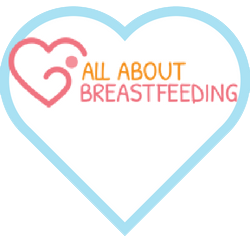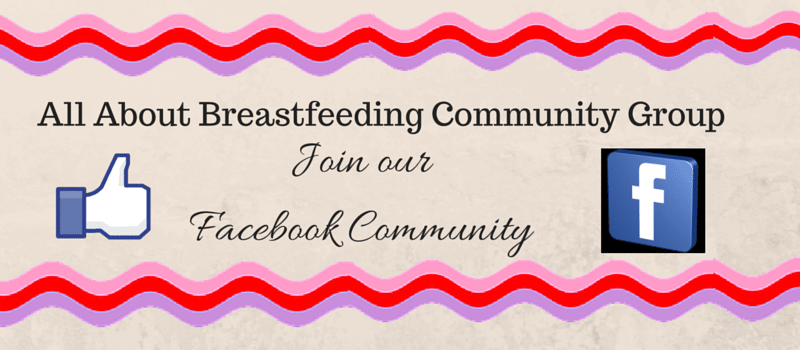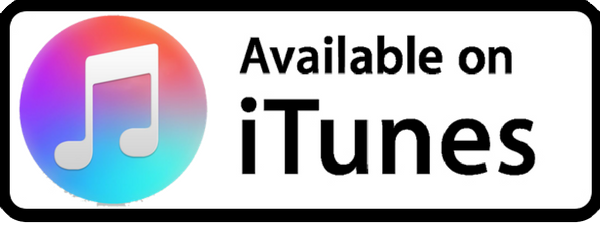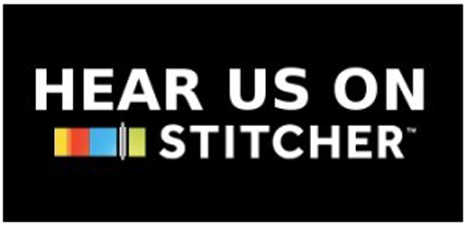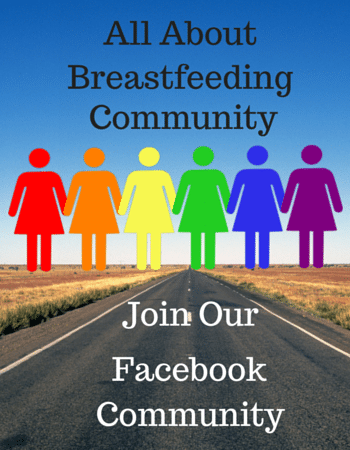The Politics of Breastfeeding: When Breasts are Bad for Business Paperback – July 15, 2009, by Gabrielle Palmer
This is one of my all time favorite books. Gabrielle Palmer exposes infant feeding as one of the most important public health issues of our time. In this powerful book, she describes how big business uses subtle techniques to pressure parents to use alternatives to breastmilk. The infant feeding product companies thirst for profit systematically undermines mothers confidence in their ability to breastfeed. Much of it is so subtle that initially you just don’t see it. Once you are made aware, it is easy to pick up on the marketing and advertising practices of the $70 billion dollar baby formula industry that causes confusion to families all over the world.
Often when I am reading a book, I have the little sticky notes, you know the ones that you can put on a page of a book so you can find your reference or quote real easily. When I am reading textbooks, I usually combine the sticky notes with a highlighter – orange and yellow are my faves. With this particularly book, I used both. There were so many pages I wanted to be able to find quickly and on every single page there are so many golden nuggets that it seemed like I was highlighting the whole page. So, this was not helpful, so I started putting just a highlighted circle in the beginning of each paragraph that I wanted to be able to find easily. As a result, my copy of the The Politics of Breastfeeding is one big ball of sticky notes and orange highlighter. It is like a good friend and while I have been going through all my books on pregnancy, birth, mothering and breastfeeding as I go through my house decluttering, during this Pandemic, this is one book I did not have to ask the Marie Kondo question. I did not have to think for even once second, if it gives me joy! Yes, that is how much I love this book.
I use to make copies of one of my favorite quotes from the book and hand it out to every single breastfeeding class I taught. I love it so much, I made sure to include it in my online breastfeeding class.
Here is the quote:
“If a multinational company developed a product that was a nutritionally balanced and delicious food, a wonder drug that both prevented and treated disease, cost almost nothing to produce that could be delivered in quantities controlled by consumers needs, the announcement of this find would send its shares rocketing to the top of the stock market. The scientists who developed the product would win prizes and the wealth and influence of everyone involved would increase dramatically. Women have been producing such a miraculous substance, breastmilk, since the beginning of human existence, yet they form the least wealthy and the least powerful half of humanity.”
While I have always loved this quote because it just reminds us all just how powerful our lovely mammary glands are, it has never been more important to support and advocate for the breastfeeding family than what we are now witnessing during this Pandemic. It seems like the world has gone crazy and people are hoarding not only toilet paper, Tylenol, alcohol, diapers and wipes – they are now hoarding infant formula. The questionable supply of infant formula often leads parents to watering down their babies formula to make it stretch further.
Now more than ever, Gabrielle’s quote rings to true to me. There are now studies going on testing human milk and how it affects the COVID-19 virus. They are testing for antibodies and their potential ability to combat the disease.
I do believe that Gabriella Palmer had it right when she called our milk a wonder drug. No guarantee that it can treat all diseases, however, it has been proved to be an amazing food that has natural cancer killing cells in it and it has been proven to help prevent and can treat some diseases.
In her book, The politics of breastfeeding, Gabrielle discusses how the infant feeding issue is often represented as one of individual choice between two parallel methods, “the breast or the bottle.” I remember when I first started working in the hospital many years ago, I would often hear the staff asking moms: Are you going to be breastfeeding or bottlefeeding? When I was an intern at pediatric offices, I would hear the pediatricians asking moms: are you going to breastfeed or bottlefeed.
I would get so pissed because this question, posed this way, made it seem like the food was the same. Gabrielle says that neither the products nor the method of delivery are equal and the true cost to society and the individual is seldome mentioned or measured. Of course, women have the right to choose how they use their bodies,and more specifically, in this case, how they use their breasts. But this does not mean that evidence based information about the risks of not breastfeeding should be censored because your physician is afraid of pressuring you or making you feel guilty. Since when is giving parents all the information they need to make an informed decision, all of a sudden be considered pressuring parents?
The same way physicians should be engaging parents in the the risks of any medical procedure or any medication prescribed to t heir child, they should be engaging in a conversation about the risks of formula feeding. We hear about informed choice all the time regarding birth practices and while we know informed choice is seen as a right, it seems to be lacking in the discussion regarding what products we will be feeding our babies.
Many of you know by listening to the moms I interview on this show, that so many of them will say: I wish someone would have told me…. and the things they wish someone told them – breastfeeding can be hard. It takes time, practice, patience and commitment to learn all the nuances of breastfeeding. Be prepared for it to take a good 6-8 weeks minimum. Moms wish someone told them that they may not need to give their baby formula if their baby was losing weight. They wish someone told them about hand expression. About SNS? About nipple shields. Moms wish someone told them ways to build a healthy milk volume and ways to ensure they keep up a good supply. Moms wish they were told about lactation consultants, how to find a lactation consultant. Moms wish they were told that if they did supplement with formula in the beginning, to learn about upright and paced feeding so there baby does not unnecessarily drink large volumes of formula. Moms ask me all the time, how come they were not told how to tell if a baby is transferring milk at the breast?
Most parents know that formula is an option and it is easy to take a bottle of free formula and feed it to your baby. They don’t need much to support them in this effort. But why are they not being given all the information they need to make this decision, before they give the first bottle of formula? Why are they not given all the information so they can feel good about what they know and make an informed choice? In her book Gabrielle Palmer says that it is a scandal that when it comes to infant feeding, informed choice is still an issue.
How many of you are a fan of reading the Preface in books? I am one of those people who do as I find they are often chock full of insights and personal thoughts of the author. In the Preface of her third edition which was in 2009, Gabrielle wrote the following:
I wish I were not writing this preface. There should be no need for this book. In a world best by overwhelming problems, here is a resolvable issue. Twenty years ago when I was writing the first edition, more than 3000 babies were dying every day from infections triggered by lack of breastfeeding and by the use of bottles, artificial milks and other risky products. This is still happening.
In the first and second editions, I described the pressures on women, on health workers and on government. I wrote about the culture of artifical feeding and the collusion between the baby food companies and the medical, nutritional and healthcare establishments. They have all promotoed products and practcs which have contributed to the suffering, illness and death of millions of babies and often their mothers too. This is still happening.
The third edition is necessary because some things have changed. Scientific rseearch has revealed more amazing facts about breastfeeding. It is now known that even in a rich country, a millionaire’s baby who is artificially fed is less healthy than the exclusively breastfed baby of the most disadvantaged mother. Long term health problems such as high blood pressure and diabetes are influenced by how babies are fed, and breastfeeding women reduce their own risk of breast cancer. Better understanding of women’s bodies shows how adaptable they are and what a resilient process breastfeeding is when it is not sabatoged from the start.
Knowledge serves no purpose if it is not spread around. As the poor get poorer and the rich get richer, an entrenched ignorance is kept in place through a culture created and maintained by commercial interests. This new edition shows how the baby food and bottle companies use ever more aggressive promotion. Challenged by the new evidence, they work harder and pour more resources into more sophisticated marketing strategies; they manipulate the media, influence governments policies and infiltrate the very agencies that are supposed to protect health.
Those who work to combat these influences have become more skilled, but progress is undermined by widespread misinformation and lack of awareness. I am so impressed by the talents of groups who struggle for human welfare: the women who support each other, the campaigners and those health workers who strive to cure their colleagues of the nonsense they learn from outdated training and text books and misleading promotional information. This book is not written for mothers, but for everyone, man or woman, parent or childless, old or young, because this issue concerns us all. I have added some facts and updated others, but the main theme remains unchanged. I hope that this will be my last preface and that this book will become merely the record of a tragically foolish phase in human history.
I really did enjoy her Preface and hope that you did too.
Early in her book, she really caught my attention by bringing up breastfeeding and the workplace. While there are many paths to take on this subject, she talks about how lactating moms are treated in the workplace.
In most of the industrialized world, and increasingly in the so called developing world, a woman working in a paid job must not flaunt any signs of lactation. If her breasts are functioning she must discreetly withdraw to feed her baby or express her milk. Is this because to suckle a baby in daily public life is too disturbing a sign for some colleagues? Do both men and women feel shocked, disapproving or even disgusted? Away from the workplace these same workers might pay to watch a woman expose her breasts for the sexual stimulation of strangers. They might pay more for food served by bare-breasted women. They may by a product, whether it be a car or perfume or jewelry, purely because a beautiful women with large breasts were advertising this product. Though any part of a woman’s body can be a focus of eroticism, our era is the first in recorded history where the breast has become a public fetish for male sexual stimulation, while its primary function has diminished on a vast scale.
Remember when Janet Jackson’s breast popped out at the televised Super Bowl. It was February 1st, 2004 in Houston, Texas. It was halftime and after a lot of sexual dance moves and crazy hip movements and lyrics about sexual desire and passion, we all remember when Justin pulled off a part of her wardrobe exposing her right breast, which showed her nipple jewelry, for perhaps a half a second before the camera’s cut away.
Well, the world went crazy. It was as though her breast had a life separate from the rest of her. It seemed like the world was abuzz about this one second slip up. It was the hot topic of conversation over the water cooler over the next few days. Some were appalled and said things like: that was the most disgusting thing I ever saw at a sports event. The news stations and the talks shows called it a “wardrobe malfunction.” Unbelievable. One minute they are all singing and dancing along with her and Justin and than the next going crazy over the sight of a breast and nipple popping out.
In her book, Gabrielle has done a wonderful job in helping us to understand how important formula sales are to big business. Here are some astounding figures in the US formula industry. In 2007, the infant formula sales was estimated to be about 3.9 billion dollars. By 2016 this total had increased to 6.5 billion dollars. This is now 2020 and I imagine formula sales have increased a few billion dollars more.
The formula companies continue to be quite savvy in their marketing and advertising to help boost their sales. They are quite tricky and it is done so subtly that unless it is pointed out to people, they have no idea how this is all done. The formula companies work together with hospitals and physicians offices to help boost their sales. WIC, which is the United States Supplemental nutrition program for Woman, Infants, and Children, provides infant formula at no cost to millions of at risk infants in low income households.
Check out this crazy statistic: Over half of all infant formula sold in the United States is obtained through WIC who has contracts with the formula companies. Hospitals think it is great, oh so nice of the formula companies to give them hundreds of thousands of free bottles of formula to pass on to their patients. People think how great and wonderful it is that the formula companies give away all this free formula.
It is often delivered to their homes when they don’t even remember asking for it. Pediatric offices keep free formula on hand, just in case. breastfeeding isn’t going well. It is either painful for mom or her baby is not gaining well. Many hospitals give out free formula. The formula companies have done an outstanding job of making the hospital staff their sales people. After working as a lactation consultant and seeing the formula being given out to every parent whether they want it or not, I agree with the saying that goes: there is no such thing as a free lunch.
That $5.00 worth of free formula is a wonderful investment for the formula companies as their return on $5.00 is about $2,000. Just think, for every 5 dollars you give away, you get 2 thousand in return. This is a fantastic business model and depending on the product, I might just do that all day long with that kind of return.
I have had many people ask me what the big deal is about hospital giving out free formula? I could easily list 20 reasons why this is not a good practice. For now, I will choose just this one: The free samples are an ethical issue for hospitals because mothers might think that their doctors endorse the formula, and the hospital staff endorse the formula and that this is good for their babies. Remember they don’t give moms a variety of brands in her free bag, they give just one. Which sends the message that they are endorsing one specific brand. This is just wrong in so many ways.
I will also say that there are many reasons why this pissed me off royally. For now, I will share just one with you:
The hospital that I worked at, absolutely refused to put local lactation consultants, me being one of them, on their discharge packet form which listed community resources for breastfeeding. Why? They told us because it would be unethical as it would look like they were endorsing us. Are you kidding me? Endorsing us
You give out thousands of bottles of free formula
of a very specific brand and giving out coupons for this same specific brands is okay? You
don’t consider that endorsing but put my name on a list of other lactation consultants if a mother is having breastfeeding challenges and would like to find someone to help her, that is not okay? I’m thinking, something is very, very, very wrong here. Someday, I will do another show which will elaborate on the whole idea of: There is no such thing as a free lunch, but for now the take home message that Gabrielle Palmer lays out in her book and that I agree with is:
The advertising schemes of the formula companies are pretty outrageous and giving out free formula helps to illustrate another example of the politics of breastfeeding and why breasts are bad for the formula businesses.
In addition to checking out the Preface, I like taking a look at the titles of Chapters in a book before deciding if I want to read it. Here are some of the chapter titles in this book?
Why breastfeeding is political
The right to call ourselves mammals: the importance of biology.
Beauty, books and breasts
A taste of infant feeding
It’s not just the milk that counts
HIV and breastfeeding
the lure of the global market
work, economics and the value of mothering
There are also chapters about The Code. Or what is called the WHO Code. In our business we just call it “The Code.” This is a short name for the International Code of Marketing of Breastmilk Substitutes, which was adopted by the World Health Assembly and UNICEF in 1981.
The Code is a marketing code that aims to protect breastfeeding, to protect all mothers and babies (whether breastfeeding, formula-feeding or combination feeding) and to prevent aggressive marketing practices that often prevent mothers from meeting their own breastfeeding goals. Infant formula, feeding bottles, and artificial nipples are the main products that fall within the scope of the Code. Pacifiers and breast pumps are not under the scope of the Code. Note that the Code only applies to the marketing of these items– it does not affect whether they are sold or used. Learning about The Code, is such a fascinating subject all on it’s own and you will read more about it in this book.
I am incredibly grateful and appreciative that you chose to take some time and listen to the All About Breastfeeding Show, My goal has always been to share good, practical, clinical and yes now some political information about breastfeeding. I have made it my mission to education and advocate for the breastfeeding family. Gabrielle Palmer’s book does just that.
Your Online Breastfeeding Class
Learn how to breastfeed – Be comfortable. Be confident.
The learning continues well beyond the average breastfeeding basics class that is 60-90 minutes. In this class, we have over 15 hours of audio lessons, combined with many hours of videos to help support what you are learning. We cover breastfeeding and medication safety, what to do if your baby does not latch on, common breastfeeding challenges, tongue tie, premature babies, building a good supply, returning to work and pumping. Take a look at the list below and follow the link to the class page so you can see more specifics of what is covered. I want to ensure that we got you covered and that you have great support well beyond the newborn days.
- Using your pregnancy time to prepare for breastfeeding
- Tips on how to prepare your home for a newborn
- Specific details about the first 24 hours after birth.
- Exactly what to expect the first two weeks after birth
- What can you do if your baby is not latching on
- Common and not so common breastfeeding challenges
- What you can expect over the next few months
- Returning to work as a breastfeeding/pumping mom
- Pumping and storing your milk
- When to begin pumping and building your freezer stash
- How to make a smooth transition to postpartum life
- Lessons dedicated to partners and breastfeeding knowledge.
- Breastfeeding and the 1 year old
- Breastfeeding the toddler and beyond
- Tandem nursing
- Breastfeeding through a pregnancy
- Medication and mother’s milk
- Weaning
Once you register for the class, you have immediate access to:
- Audio Lessons
- Videos
- Educational handouts
- Helpful checklists
- Our “members only” group
- Weekly group LIVE Q&A sessions
Gain confidence in breastfeeding.
Expert advice from Lori J. Isenstadt, IBCLC who has over 25 years of experience in maternal health and lactation. I will help you navigate the ins and outs of breastfeeding.
Listen anywhere and anytime. Imagine not having to sit in a classroom or stare at a screen. You can learn all about breastfeeding while going for a walk, driving to work or running errands, traveling on a plane, train or bus. Because you can download the audios, learning is easy and convenient. Get ready to learn anytime whenever it’s convenient for you and your partner. You can be cooking dinner together and listening to the class. Perhaps relaxing together in the evening in your comfy clothes. You can learn together. Easy access to all class materials. Your class never expires. You’ll be able to listen and download the materials at your convenience.
You are not alone!
Once you are a student in the breastfeeding class, you have regular access to ongoing support for the whole time you are breastfeeding. You can have your questions answered by Lori J. Isenstadt, IBCLC, in our private group as well as our weekly live Q & A sessions. Just check out the Bonuses below to see how I provide you with ongoing support..
Exclusive Bonus #1
Immediate access to a private group for class students only. I will be answering your questions 5 days a week.
Exclusive Bonus #2
Invitation to join our weekly Q & A session with Lori and other students.
Exclusive Bonus #3
Need additional help? *25% discount off a private consult – for students only.
*If you are in the Phoenix metro area. use this link to schedule your Office or Home lactation consult.
*If you are out of the area, use this link to schedule a Skype call
Do you have a question about the class before you purchase? Send it to – aabreastfeeding@hotmail.com
 Register for the Breastfeeding class
Register for the Breastfeeding class
http://www.aabreastfeeding.com/audioclass
Additional ways to connect with me:
Like us on Facebook HERE:
http://bit.ly/2dNPlsC
Follow us on Twitter HERE:
@breastfeedingaz
http://bit.ly/2BfEIJ2
Follow us on Pinterest HERE:
https://www.pinterest.com/lorijisenstadt
Subscribe on iTunes the All About Breastfeeding show HERE:
https://apple.co/2FJGwsV
Lori J. Isenstadt, IBCLC
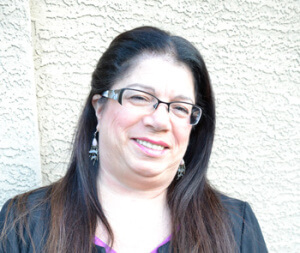 Lori Jill Isenstadt, IBCLC is a huge breastfeeding supporter. She has spent much of her adult life working in the maternal health field. Once she became turned on to birth and became a childbirth educator, there was no stopping her love of working with families during their childbearing years. Lori became a Birth doula and a Postpartum doula and soon became a lactation consultant. She has been helping moms and babies with breastfeeding for over 25 years. Lori founded her private practice, All About Breastfeeding where she meets with moms one on one to help solve their breastfeeding challenges. She is an international speaker, book author and the host of the popular itunes podcast, All About Breastfeeding, the place where the girls hang out. You can reach Lori by email at: aabreastfeeding@hotmail.com or contact her via her website: allaboutbreastfeeding.biz/contact
Lori Jill Isenstadt, IBCLC is a huge breastfeeding supporter. She has spent much of her adult life working in the maternal health field. Once she became turned on to birth and became a childbirth educator, there was no stopping her love of working with families during their childbearing years. Lori became a Birth doula and a Postpartum doula and soon became a lactation consultant. She has been helping moms and babies with breastfeeding for over 25 years. Lori founded her private practice, All About Breastfeeding where she meets with moms one on one to help solve their breastfeeding challenges. She is an international speaker, book author and the host of the popular itunes podcast, All About Breastfeeding, the place where the girls hang out. You can reach Lori by email at: aabreastfeeding@hotmail.com or contact her via her website: allaboutbreastfeeding.biz/contact
your email address will not be published
